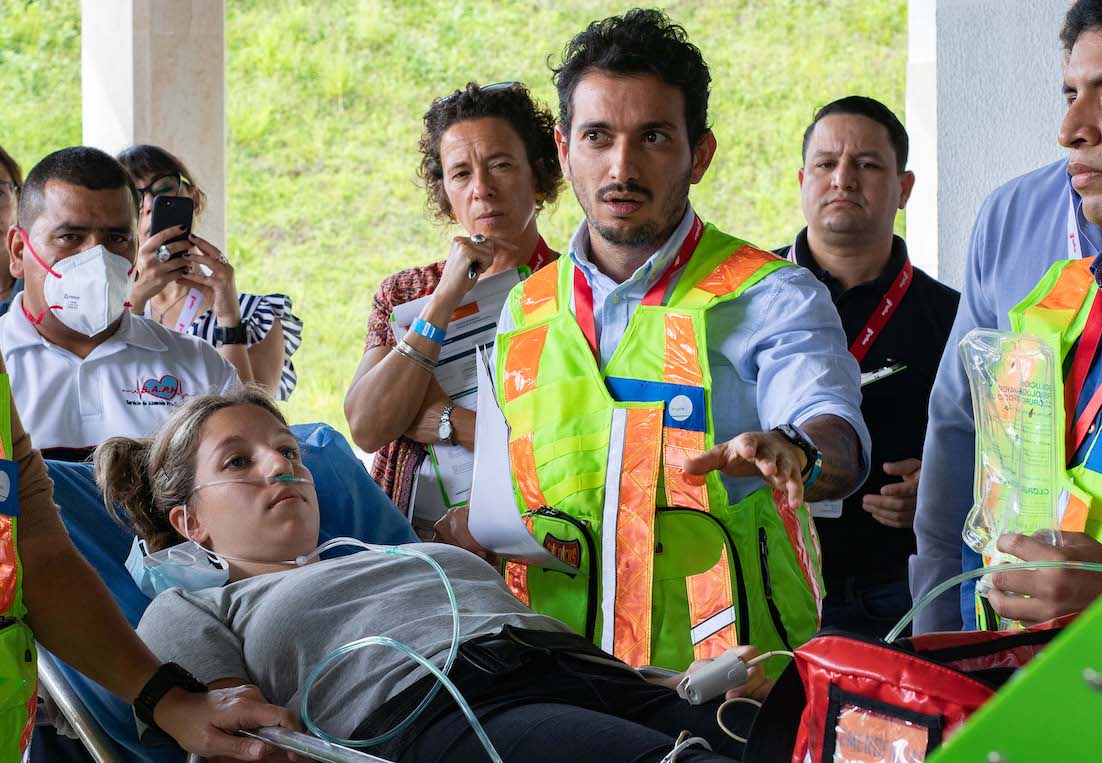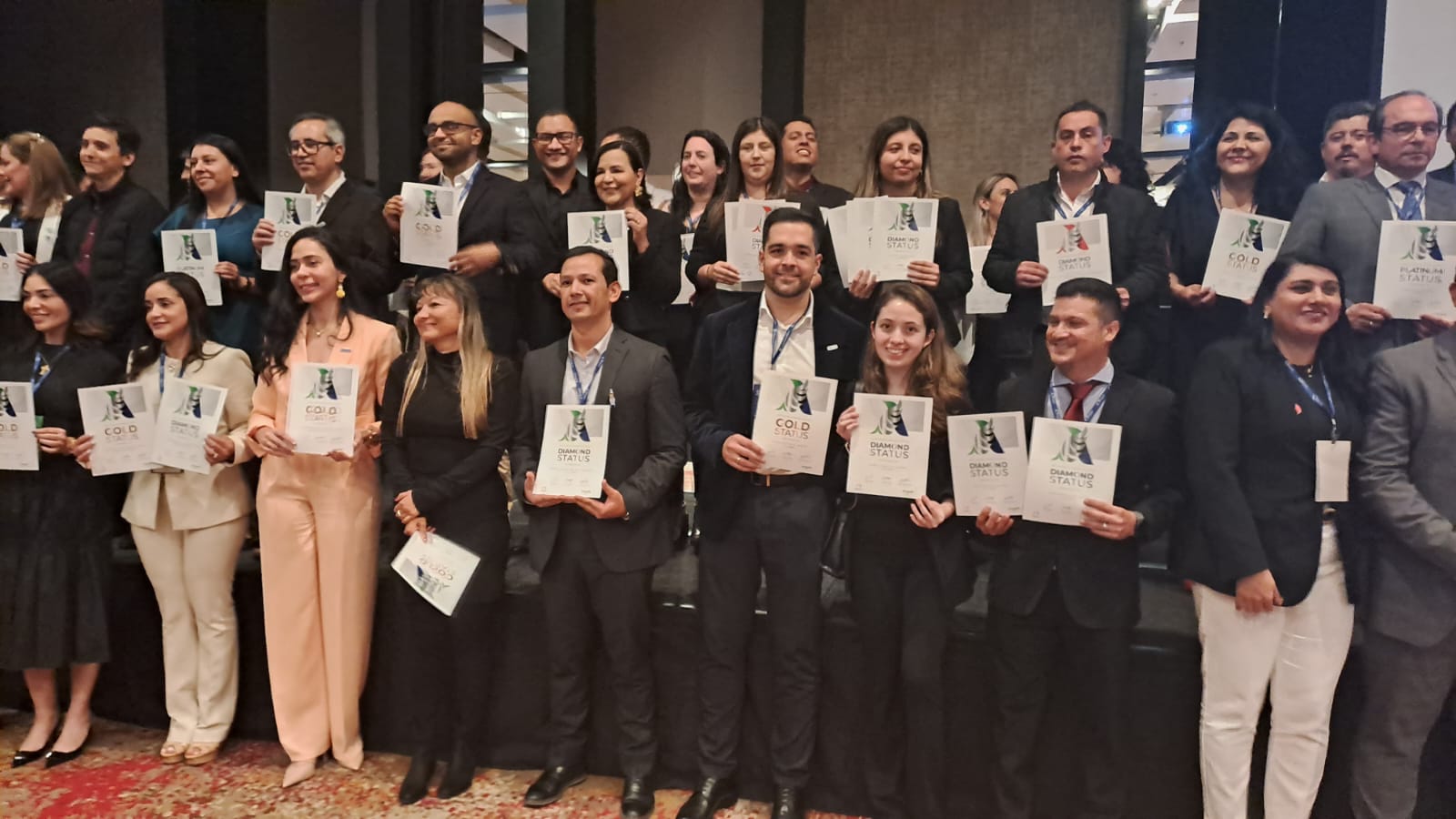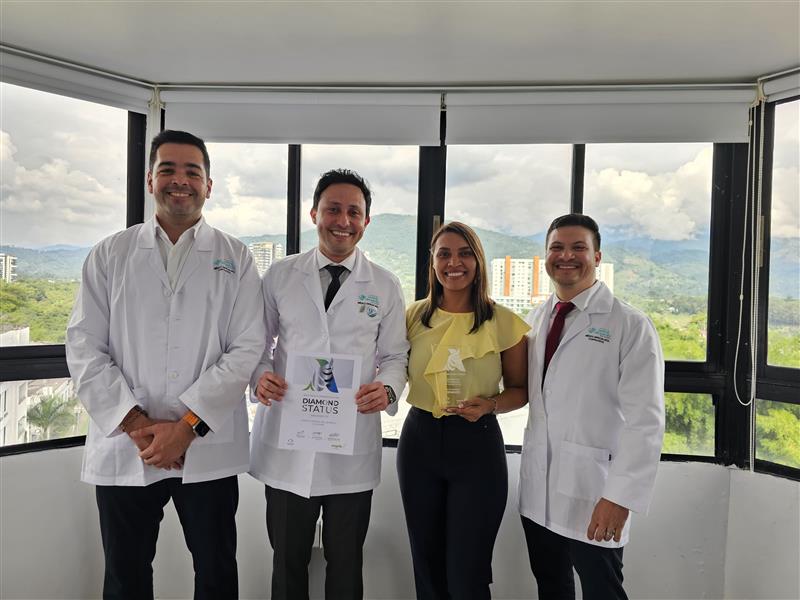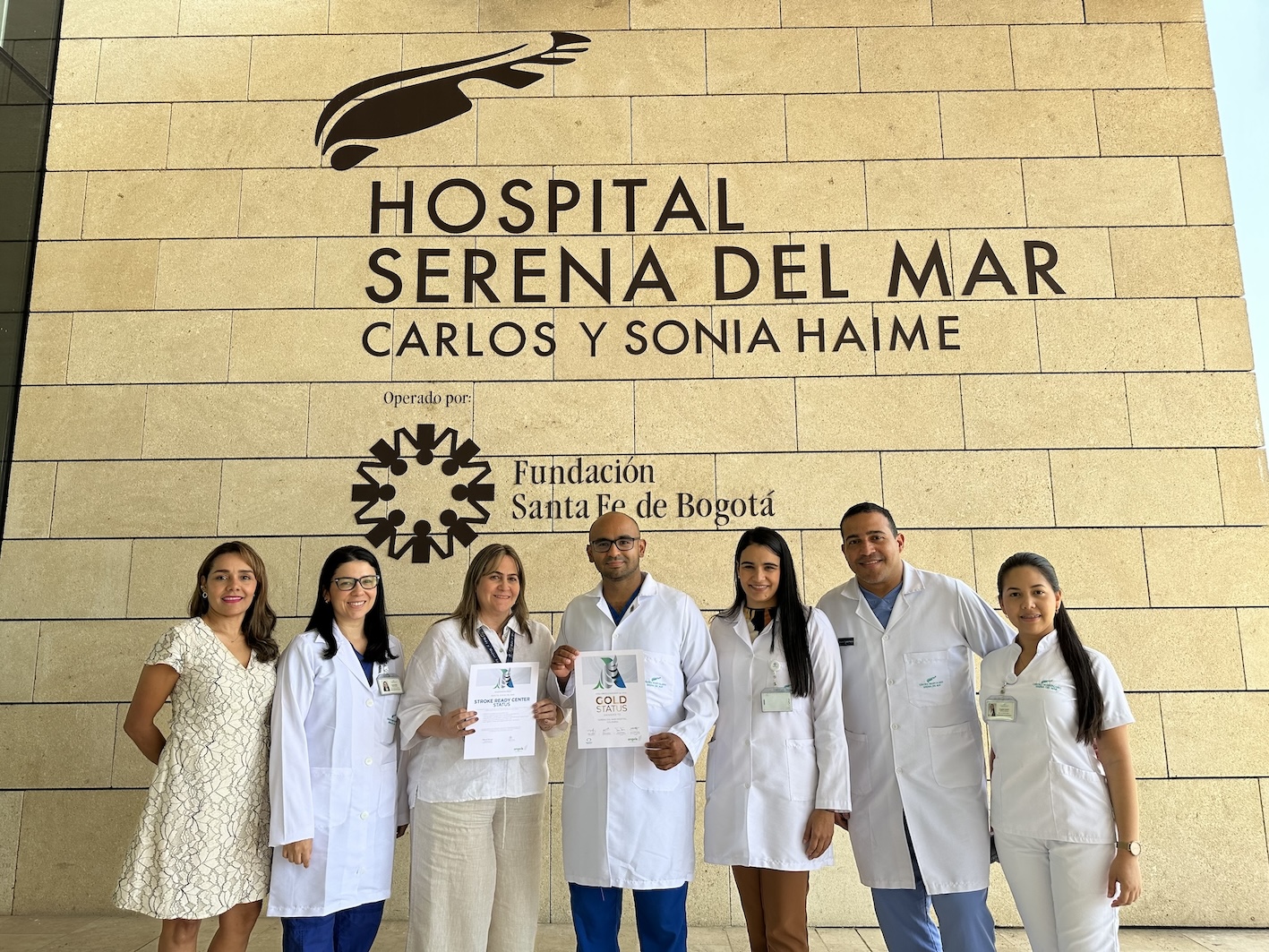
DR Claudio Jiménez เป็นนักประสาทวิทยาและนักสรีรวิทยาที่โรงพยาบาล Simón Bolívar ของ Bogotá และผู้อํานวยการศูนย์โรคหลอดเลือดสมองของเครือข่ายย่อยทางตอนเหนือของเมือง เป็นเวลากว่าสี่ปีแล้วที่เขาก้าวเข้ามาครั้งแรกในโรงพยาบาลของรัฐ ซึ่งอยู่ระหว่างถนนสายหลักที่วุ่นวายกับถนนสายใหญ่ที่สุดแห่งหนึ่งของโบโกตา โรงพยาบาล Simón Bolívar ก่อตั้งขึ้นในปี ค.ศ. 1982 และตั้งชื่อเพื่อเป็นเกียรติแก่วีรบุรุษอิสระที่มีรูปปั้นทรงสี่เหลี่ยมจัตุรัสกลางของโบโกตา โรงพยาบาล Simón Bolívar ได้ผ่านกระบวนการปรับปรุงและขยายกิจการมาเป็นเวลาหลายปีในขณะที่แผนกประสาทวิทยากําลังมีการปฏิวัติอย่างเงียบ ๆ
ผู้นําของการปฏิวัติครั้งนี้ได้รับความสนใจในอาชีพของเขาด้วยความหลงใหลและด้วย “ความลึกลับทางปรัชญาและทางกายภาพที่ซ่อนอยู่ในใจ” ดังนั้น ดร. Jiménez จึงเขียนในโพสต์บนหน้า Instagram @neuro_filos ซึ่งเขาแบ่งปันพัฒนาการด้านประสาทวิทยากับผู้ติดตามเกือบ 50,000 คนของเขา
“เมื่อเราบันทึกเนื้อเยื่อสมอง เราจะบันทึกเนื้อผ้าทางสังคม” หน้าเดียวกันได้ประกาศไว้ โดยนําเสนอสิ่งอื่น ๆ ที่ขับเคลื่อนดร. Jiménez ซึ่งก็คือหน้าที่ในการสร้างแหล่งที่มาที่เป็นของและเป็นประโยชน์ต่อทุกคน
ด้วยความหลงใหลแบบคู่นี้ เขาจึงเข้าร่วมกับโรงพยาบาล Simón Bolívar ในเดือนสิงหาคม 2019 และเริ่มดําเนินการแทรกแซงอย่างต่อเนื่อง โดยเริ่มจากการสร้างทีมเพื่อจัดการโรคหลอดเลือดสมอง "จากช่วงเวลานั้นในชีวิตของฉันเปลี่ยนไปอย่างมาก" เขาบอกกับสมาคมแพทย์โคลอมเบียในการสัมภาษณ์ในปี 2021 ซึ่งเป็นเวลาที่โครงการรักษาโรคหลอดเลือดสมองของโรงพยาบาลได้รับรางวัล WSO Angels Diamond Awards ครั้งที่สองจากทั้งหมดสามรางวัล
สิ่งที่เริ่มเป็นความอยากรู้อยากเห็นเกี่ยวกับวิธีที่สมองสร้างการรับรู้ความเป็นจริงของเรา และความปรารถนาที่จะบรรเทาความทุกข์ทรมานได้วิวัฒนาการไปสู่วิสัยทัศน์ของการปฏิรูปการดูแลสุขภาพสาธารณะในสังคมที่ใส่ใจ เป็นความฝันของดร. Jiménez ที่ทุกคนที่ทําให้โบโกตาอยู่บ้านของพวกเขาควรได้รับการดูแลด้วยคุณภาพและมนุษยชาติ หากพวกเขาไปโรงพยาบาล
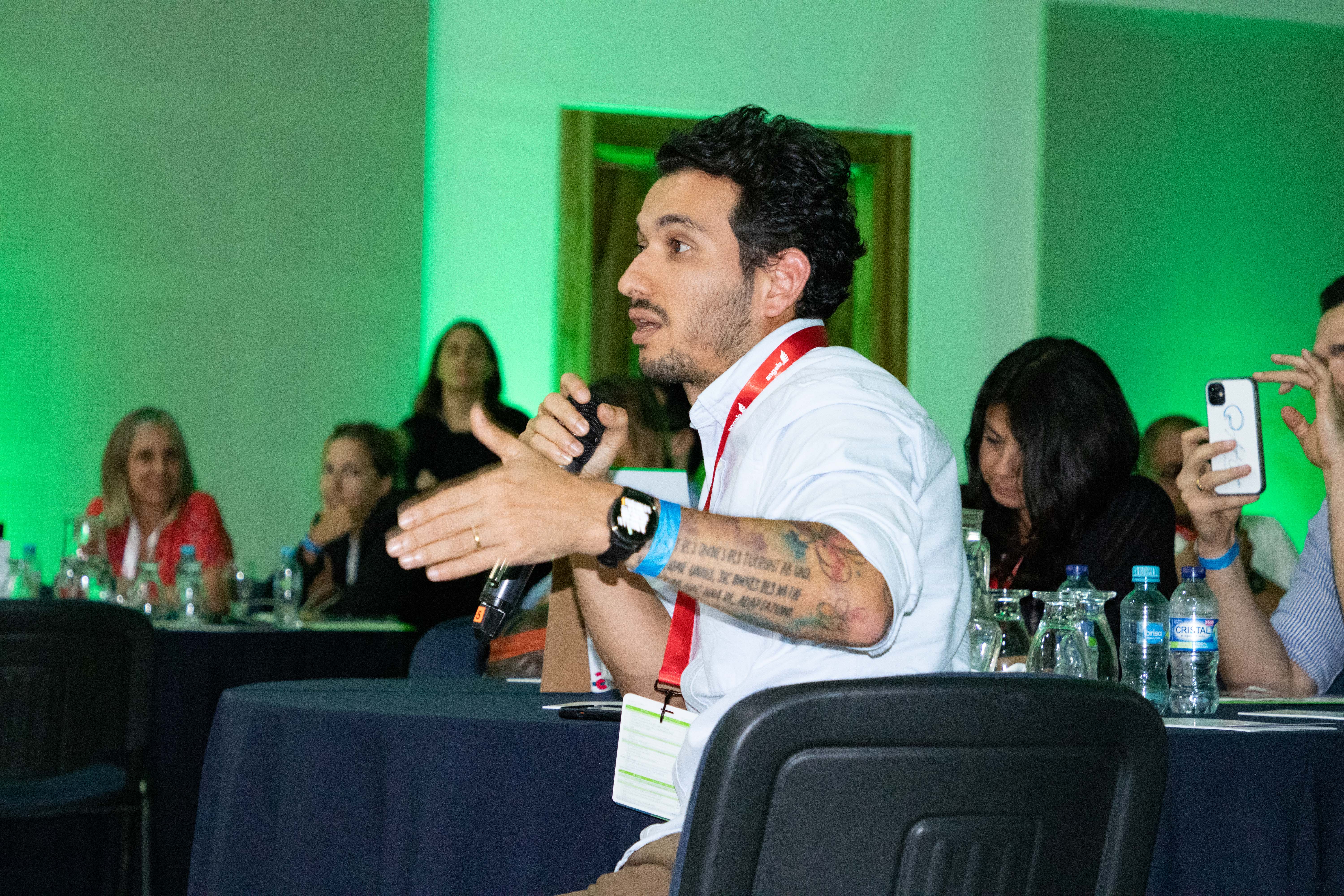
ปัญหาใหญ่และอนาคตที่มีความหวัง
“เมื่อฉันเริ่มทํางานที่โรงพยาบาล Simón Bolívar” Dr Jiménez กล่าว “ฉันค้นพบว่ามีปัญหาเล็ก ๆ หลายอย่าง แต่ปัญหาหนึ่งที่ร้ายแรงและเร่งด่วนคือการสร้างระเบียบการสําหรับโรคหลอดเลือดสมองและการรักษามาตรฐาน สิ่งนี้ทําให้เราสร้างเครือข่ายโรคหลอดเลือดสมองแห่งแรกในประเทศและศูนย์โรคหลอดเลือดสมองแห่งแรกในเครือข่ายสาธารณะของโคลอมเบียที่ได้รับการรับรองจาก WSO
“ตอนนี้เราเข้าร่วมกับผู้ป่วย 450 ถึง 500 รายที่เป็นโรคหลอดเลือดสมองตีบตันต่อปี และได้รับการรักษามากกว่า 110 รายด้วยการสลายลิ่มเลือด แต่ยังมีข้อบกพร่องอย่างมากในการเข้าถึงการลากลิ่มเลือด เรากําลังทํางานร่วมกับเลขานุการฝ่ายสุขภาพของเราเพื่อสร้างเครือข่ายโรคหลอดเลือดสมองเขตที่พยายามกําจัดอุปสรรคในการเข้าถึงการลากลิ่มเลือดเชิงกล
“ต้องพิจารณาว่าในเครือข่ายสาธารณะของโบโกตาเพียงแห่งเดียว มีผู้ป่วยโรคหลอดเลือดสมองมากกว่า 2,000 รายต่อปี และปัจจุบันเราเป็นหน่วยงานสาธารณะเพียงแห่งเดียวที่สามารถนําเสนอขั้นตอนนี้ได้
“แต่ถึงแม้ว่าแนวโน้มในปัจจุบันจะยังคงมืดอยู่ แต่ฉันก็เห็นอนาคตที่มีความหวังสูง ความก้าวหน้าที่สําคัญที่สุดคือประชากรตระหนักถึงอาการของโรคหลอดเลือดสมองมากขึ้น แต่พวกเขากําลังเรียนรู้ที่จะปรึกษาหน่วยฉุกเฉินได้ทันเวลา
“ตอนนี้เราต้องการรักษาโรคหลอดเลือดสมองก่อนโรคหลอดเลือดสมอง นั่นคือ เรากําลังดําเนินโครงการที่ช่วยให้เราสามารถระบุและประเมินผู้ป่วยที่มีปัจจัยเสี่ยงและรักษาผู้ป่วยเพื่อป้องกันโรคหลอดเลือดสมอง”
ที่ Simón Bolívar โครงการโรคหลอดเลือดสมองตอนนี้อยู่ในโครงการประสาทวิทยาที่ครอบคลุม ซึ่งรวมถึงศูนย์ฟื้นฟูระบบประสาท และผู้นํากลุ่มประสาทวิทยาโดย Dr. Maria Isabel Reyes ที่ผ่านการฝึกอบรมโดย Johns Hopkins ที่เข้าร่วมงานกับผู้ป่วยที่ติดเชื้อทางระบบประสาท รวมถึง HIV นอกจากนี้ ยังมีคลินิกสําหรับอาการปวดศีรษะและโบทูลินัมท็อกซินเพื่อรักษาอาการเกร็งและความผิดปกติด้านการเคลื่อนไหว และในเหตุการณ์ปิด การให้บริการประสาทวิทยาฉุกเฉินที่จะรักษาอาการทางระบบประสาทแบบเฉียบพลันนอกเหนือจากโรคหลอดเลือดสมอง
ดร. Jiménez กล่าวว่า “เราเข้าใจมากขึ้นว่าโรคทางระบบประสาทเป็นปัญหาด้านสาธารณสุข ยังคงมีการขาดทรัพยากร การจัดหาเงินทุน และการเข้าถึงเครื่องมือช่วยวินิจฉัยพื้นฐานบางอย่าง แต่ผมต้องบอกว่าเรากําลังปรับปรุง”
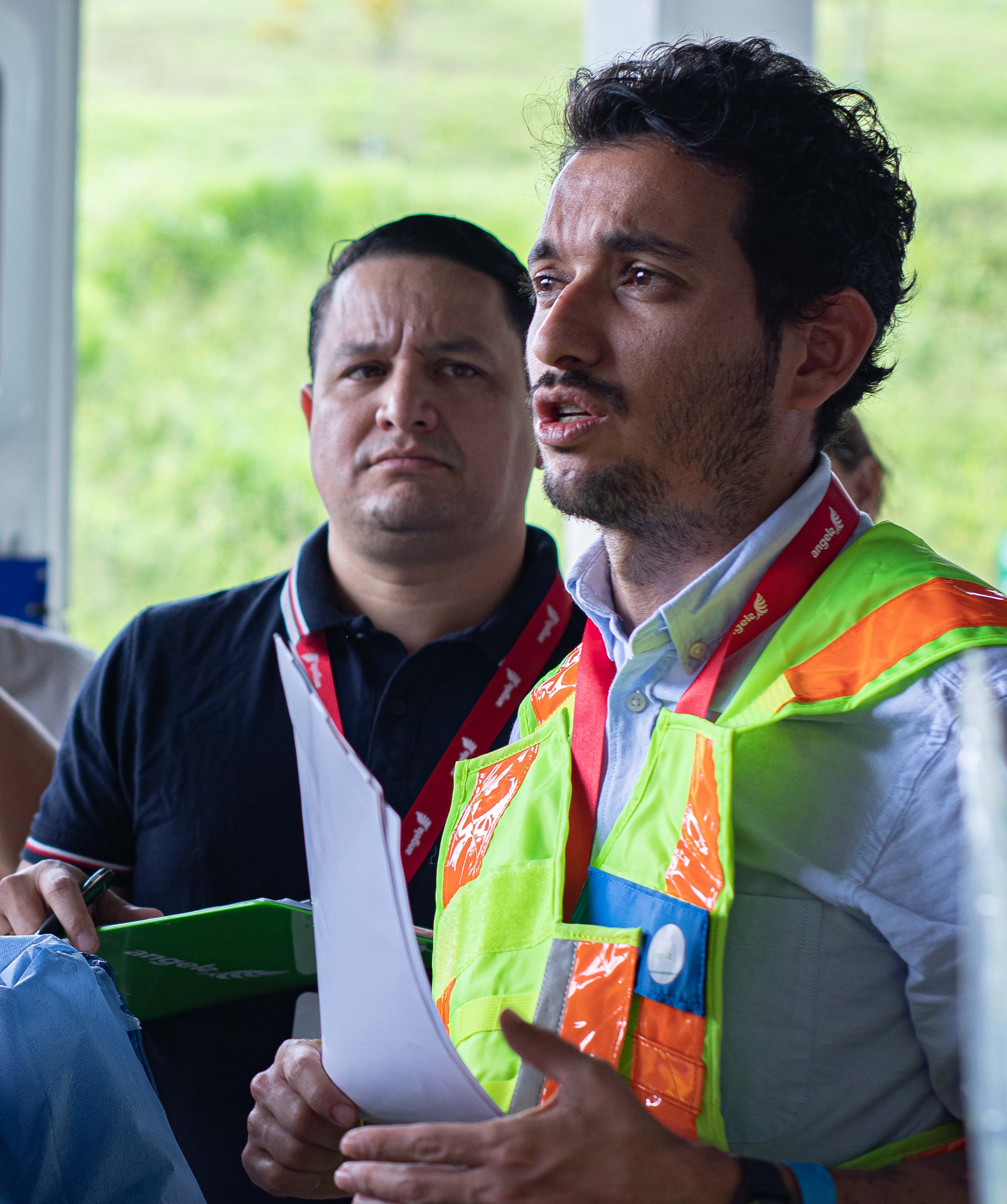
ความยุติธรรมทางกวี
นักรณรงค์เพื่อความยุติธรรมทางสังคมในด้านการดูแลสุขภาพ รูปแบบการแสดงออกที่มีจินตนาการของดร. Jiménez ยังทําให้เขากลายเป็นกวีนักปรัชญาอีกด้วย
เขากล่าวว่า "ฉันได้เรียนรู้ที่จะใช้ยาและการปฏิบัติทางการแพทย์ของฉันเป็นเครื่องมือในการไตร่ตรองเกี่ยวกับชีวิตตัวเองในสิ่งที่ควรมีความสําคัญและสิ่งที่ไม่ควรในการค้นหาความหมายหากมีหนึ่งของการอยู่ที่นี่ในสถานที่นี้บนหินสีเขียวและสีฟ้าขนาดใหญ่นี้ประสบกับบางสิ่งบางอย่างเช่นจิตสํานึก
“โลกเต็มไปด้วยชีวิตชีวา ตั้งแต่พืชไปจนถึงชีวิตสัตว์ในรูปแบบต่าง ๆ มากมาย และถึงแม้ว่าจะมีประสบการณ์ด้านการรับรู้และอารมณ์ในตัวทุกคน แต่มนุษย์ของเราก็เป็นบุคคลเดียวที่ตั้งคําถามกับตัวเอง ระบุตัวตนของเรา และเปลี่ยนแปลงสภาพแวดล้อมเพื่อหลีกเลี่ยงการปรับตัวของเราให้เข้ากับมัน
“ดังนั้นคุณจะเห็นความทุกข์ทรมานทั้งหมดนี้ คุณจะเห็นคนที่สูญเสียภาษาของพวกเขา นาทีที่แล้วคุณสามารถพูดว่า ‘ฉันรักคุณ’ ได้ เมื่อไม่กี่นาทีที่แล้วคุณสามารถเขียนข้อความเพื่อเปลี่ยนความคิดอีเธอร์เรลเป็นตัวอักษร ชั่วขณะที่ผ่านมาคุณมีอิสระในการกอดวิ่งแสดงความสุขหรือความเศร้าแล้วทันใดนั้นก็หายไป ทันใดนั้นคุณไม่สามารถกอดได้ คุณไม่สามารถพูดว่า ‘ฉันรักคุณ’
“โรคหลอดเลือดสมองก็เหมือนกับนักล่าที่คอยติดตามเราทุกคนในทุกช่วงอายุ และราวกับว่ามันเป็นการซุ่มโจมตีที่คดเคี้ยวกับมนุษยชาติของเรา หรือบางสิ่งบางอย่างที่จําเป็นสําหรับมัน
“ฉันเห็นคนหลายร้อยคนต่อปีต้องทนทุกข์ทรมานจากการกัดของสัตว์ตัวนั้น และฉันต้องดูว่ามีอะไรเหลืออยู่บ้าง แล้วเราก็พยายามอย่างเต็มที่ในการดูแลสัตว์เหล่านั้น เพื่อซ่อมแซมความเสียหาย ราวกับว่าเรากําลังกัดสัตว์ที่มองไม่เห็นอยู่
“อืม เรื่องนี้สรุปได้ว่าผมตัดสินใจว่าผมจะทุ่มเทชีวิตของผมในการรักษาโรคหลอดเลือดสมองตีบ เพื่อที่ไม่มีใครหยุดพูดว่า ‘ผมรักคุณ’ ฉันสรุปในประโยคเดียวว่า ‘เมื่อเราบันทึกเนื้อเยื่อสมอง เราจะบันทึกเนื้อผ้าทางสังคม’ แต่เราสามารถพูดว่า ‘เมื่อเราเก็บเนื้อเยื่อสมองไว้ โลกก็ยังคงบอกว่าฉันรักคุณ’”
